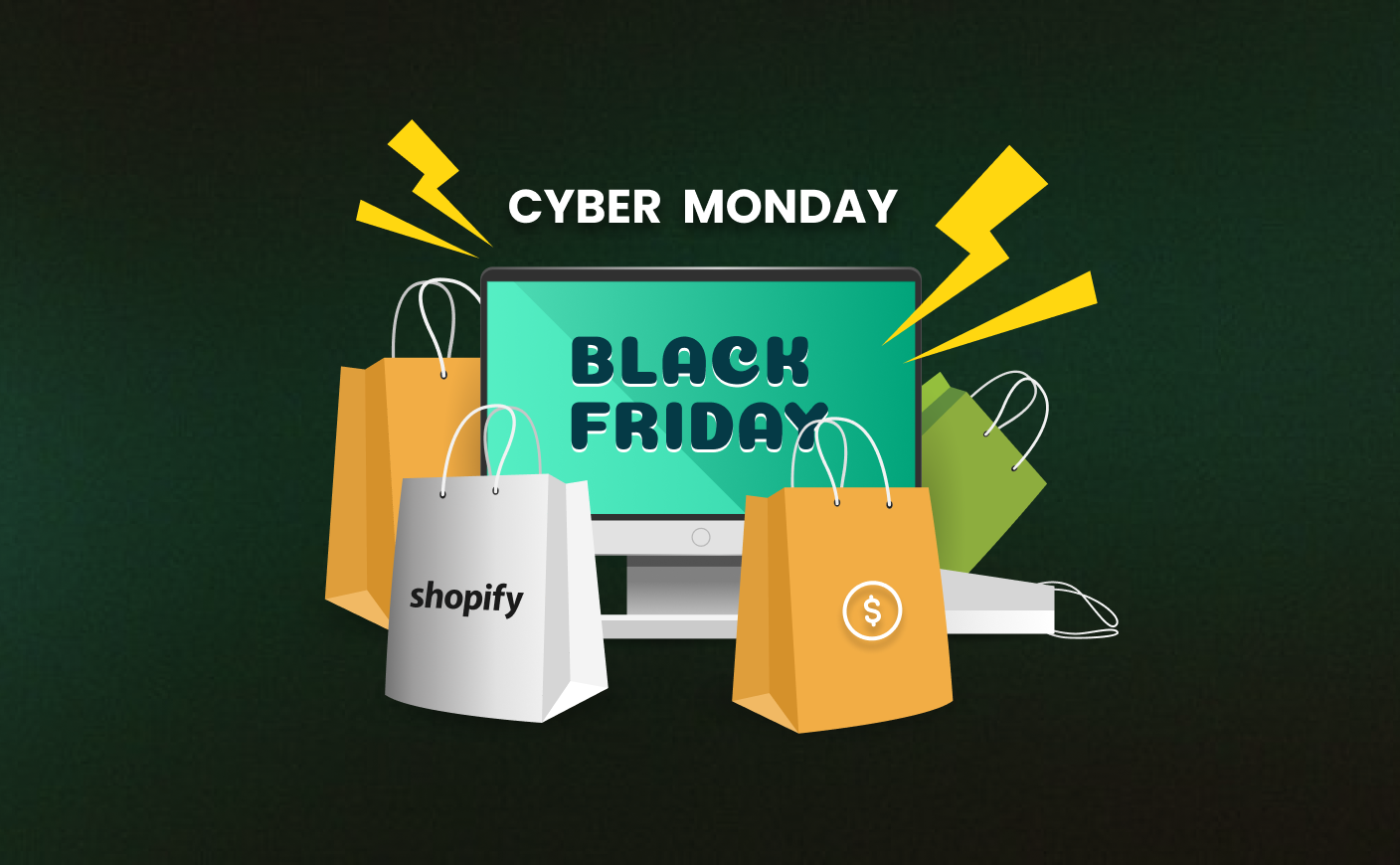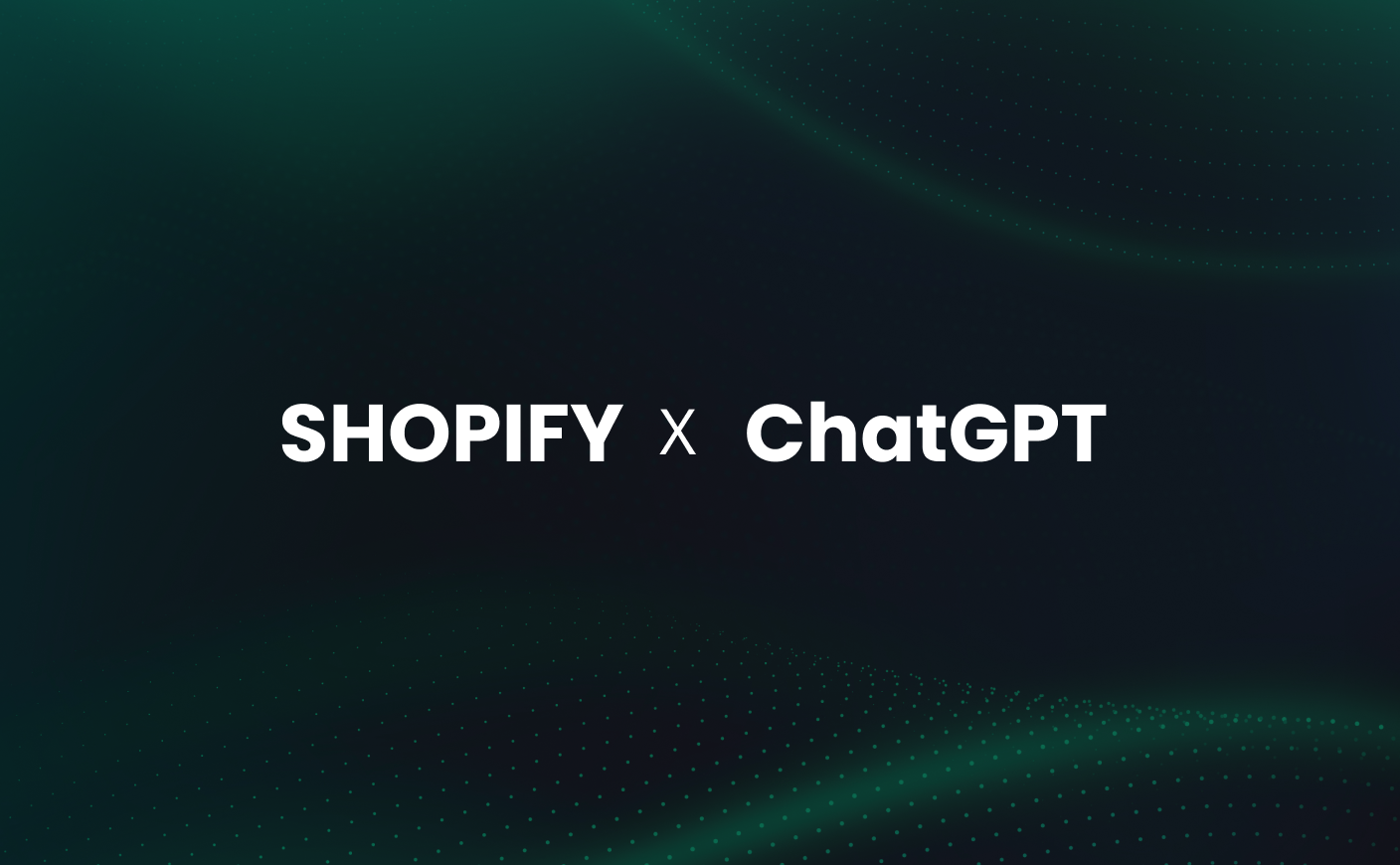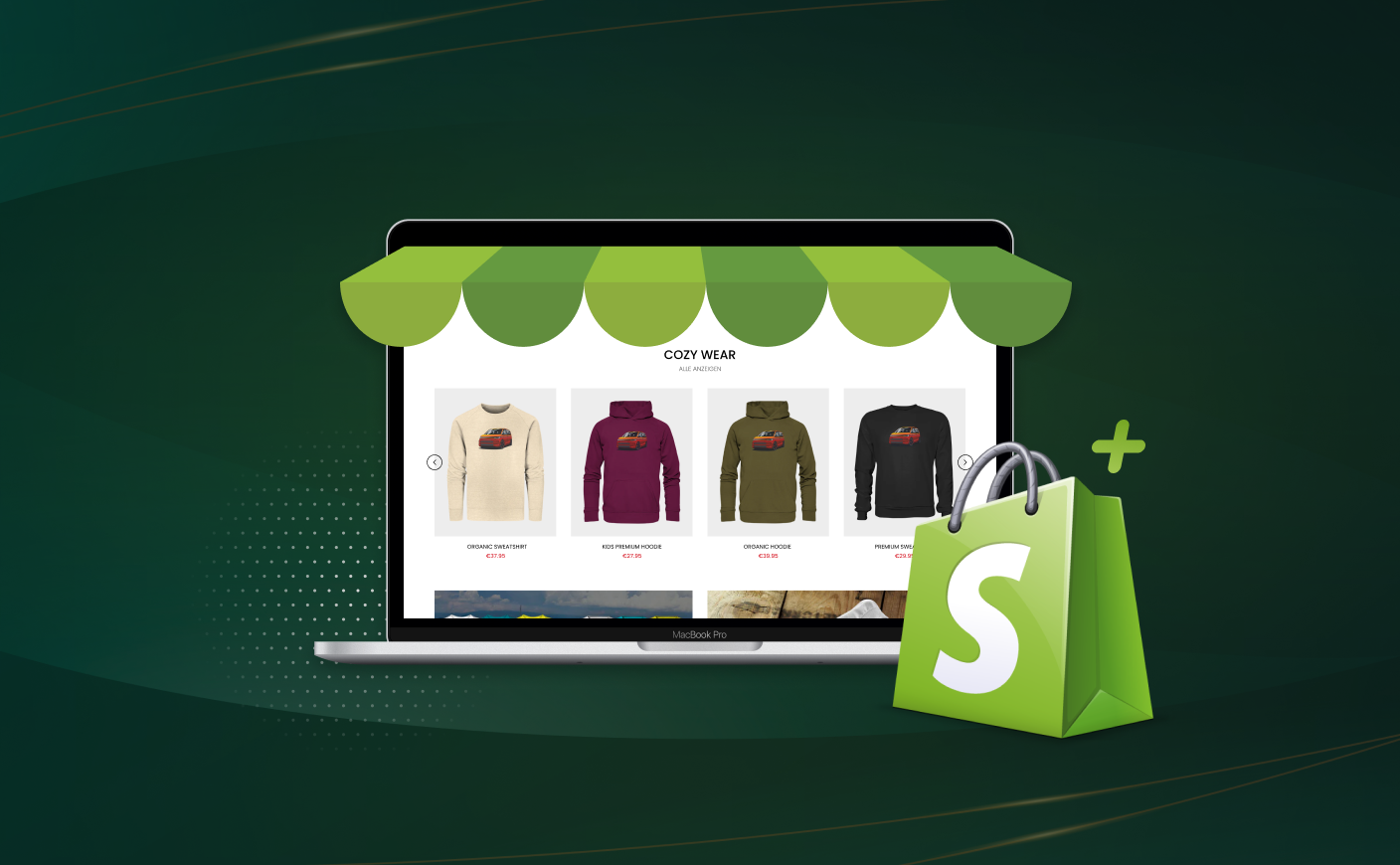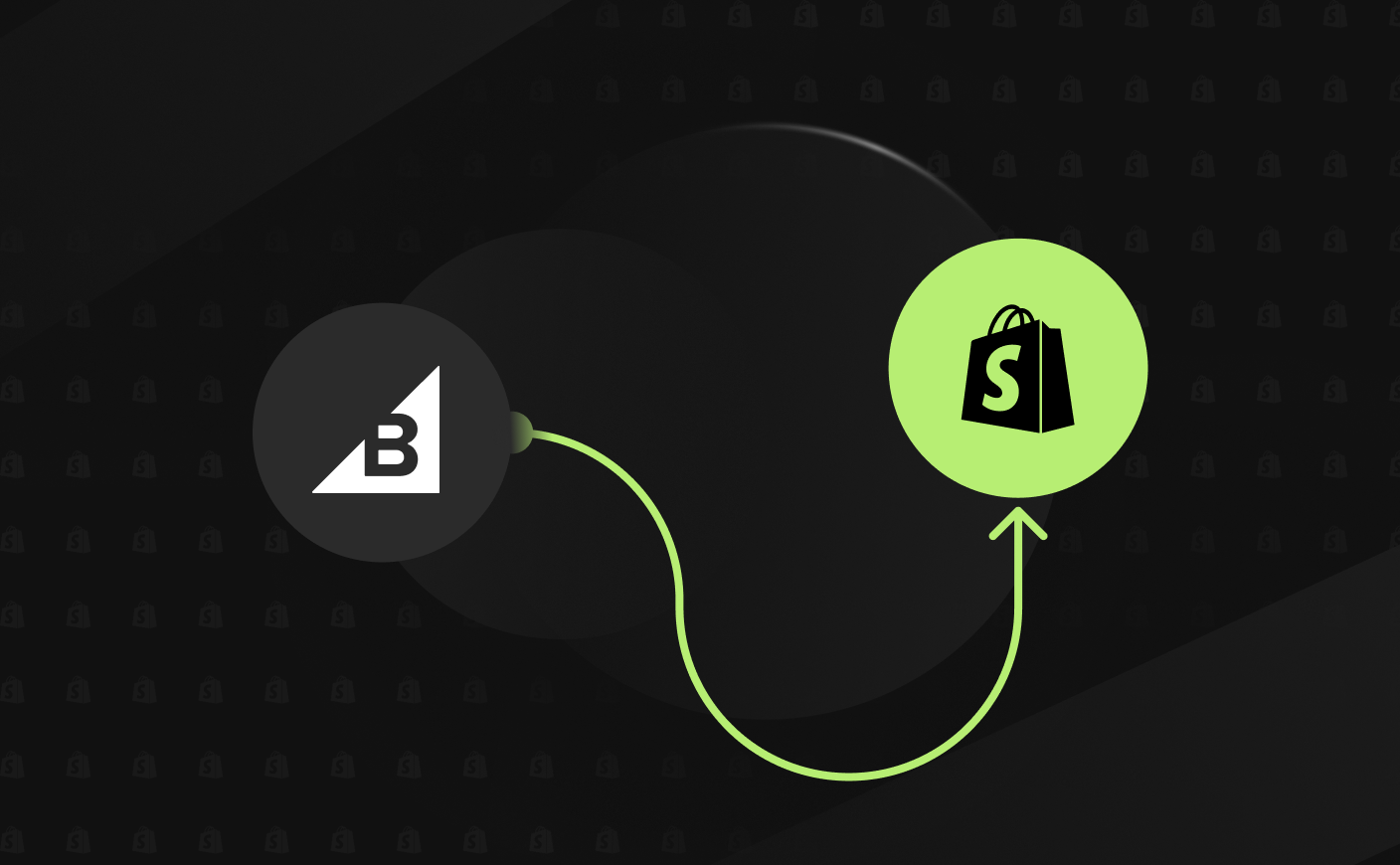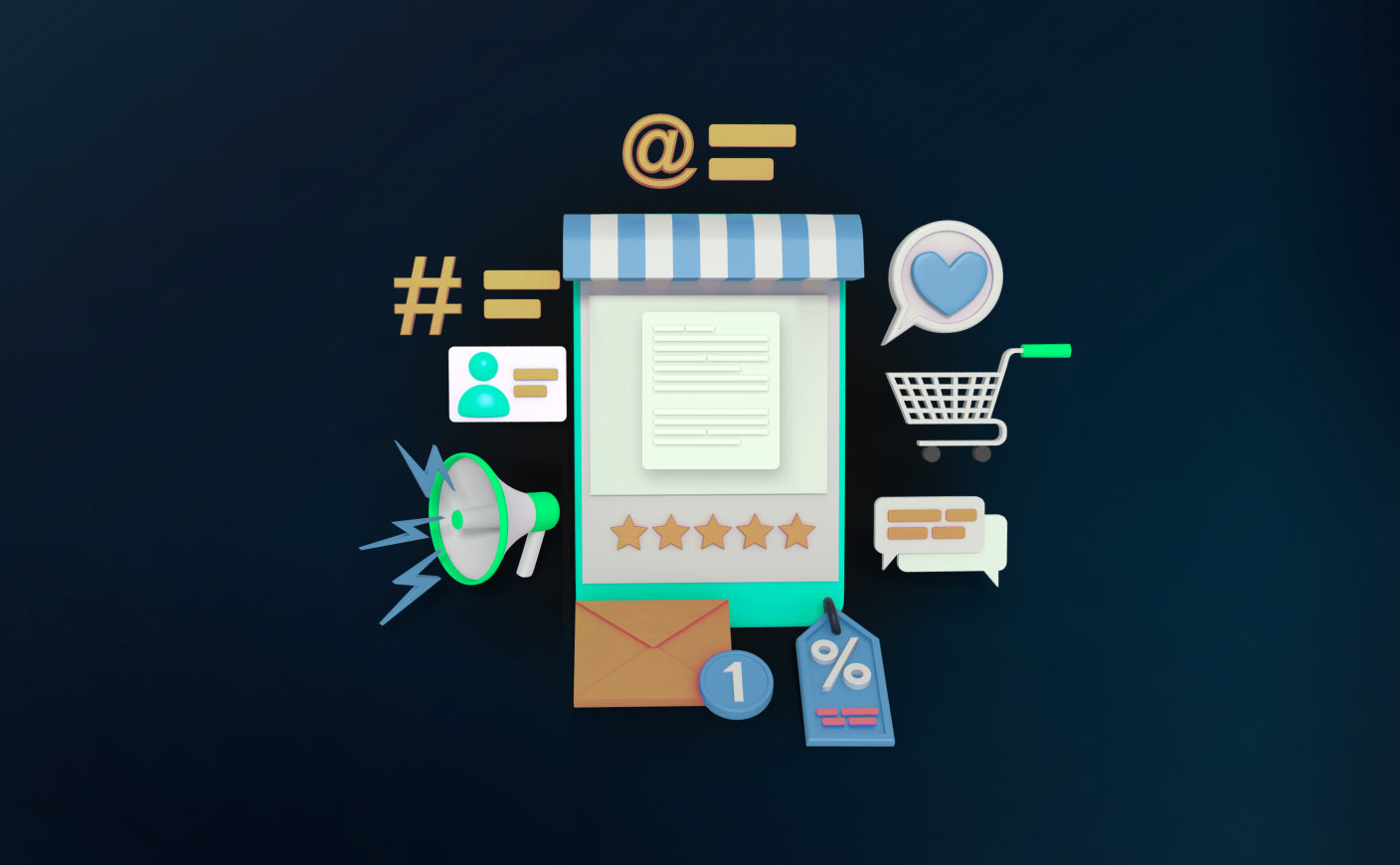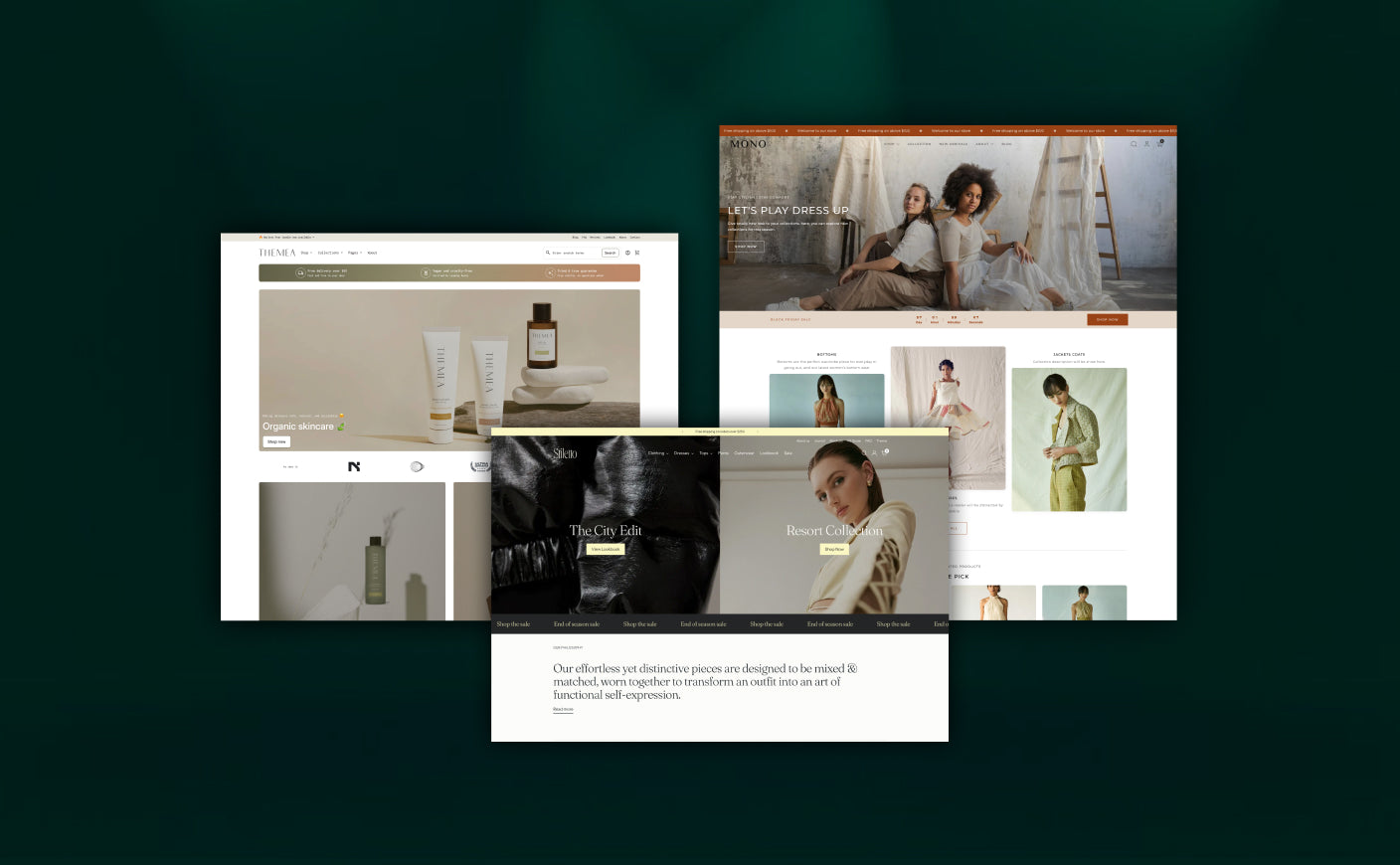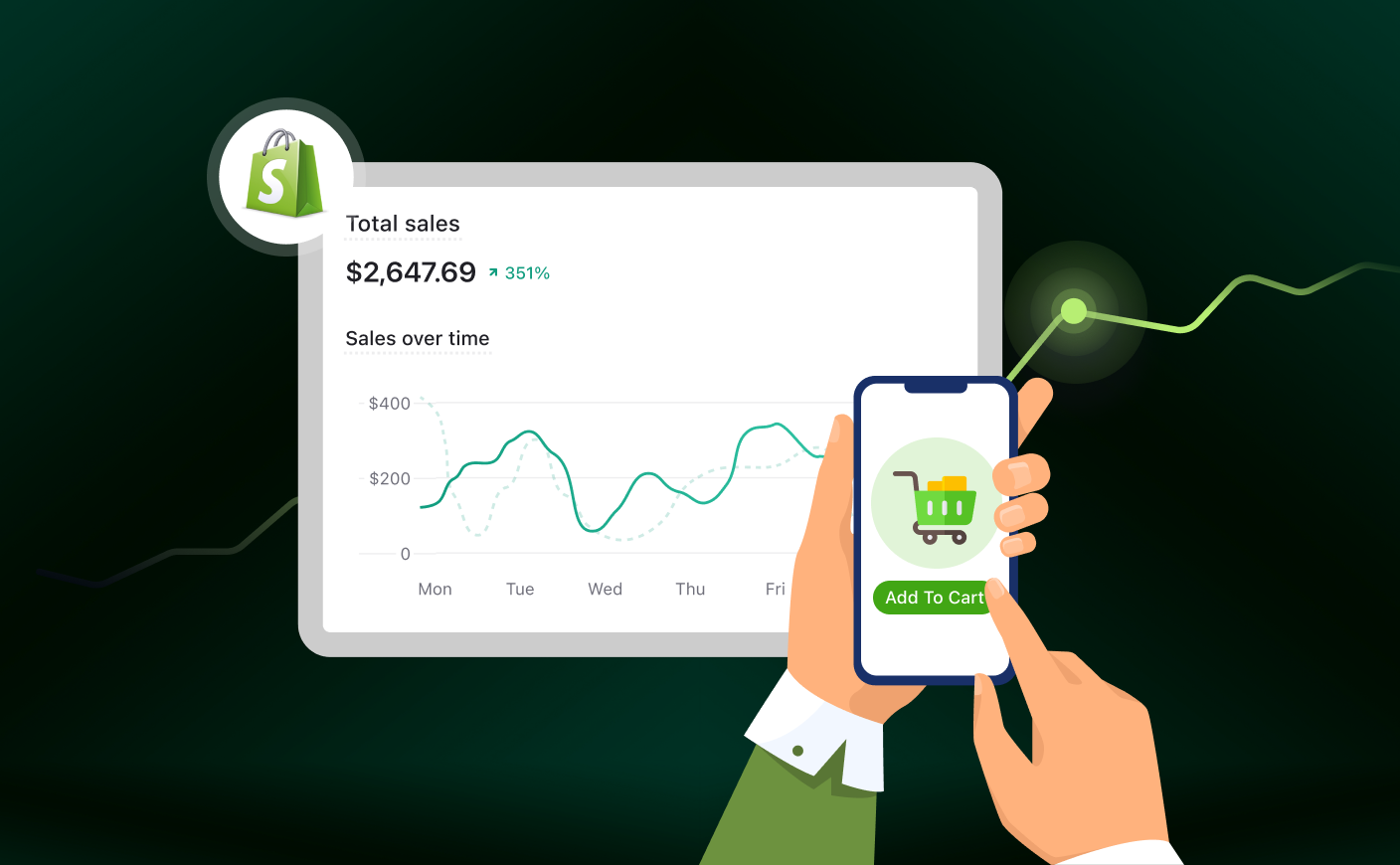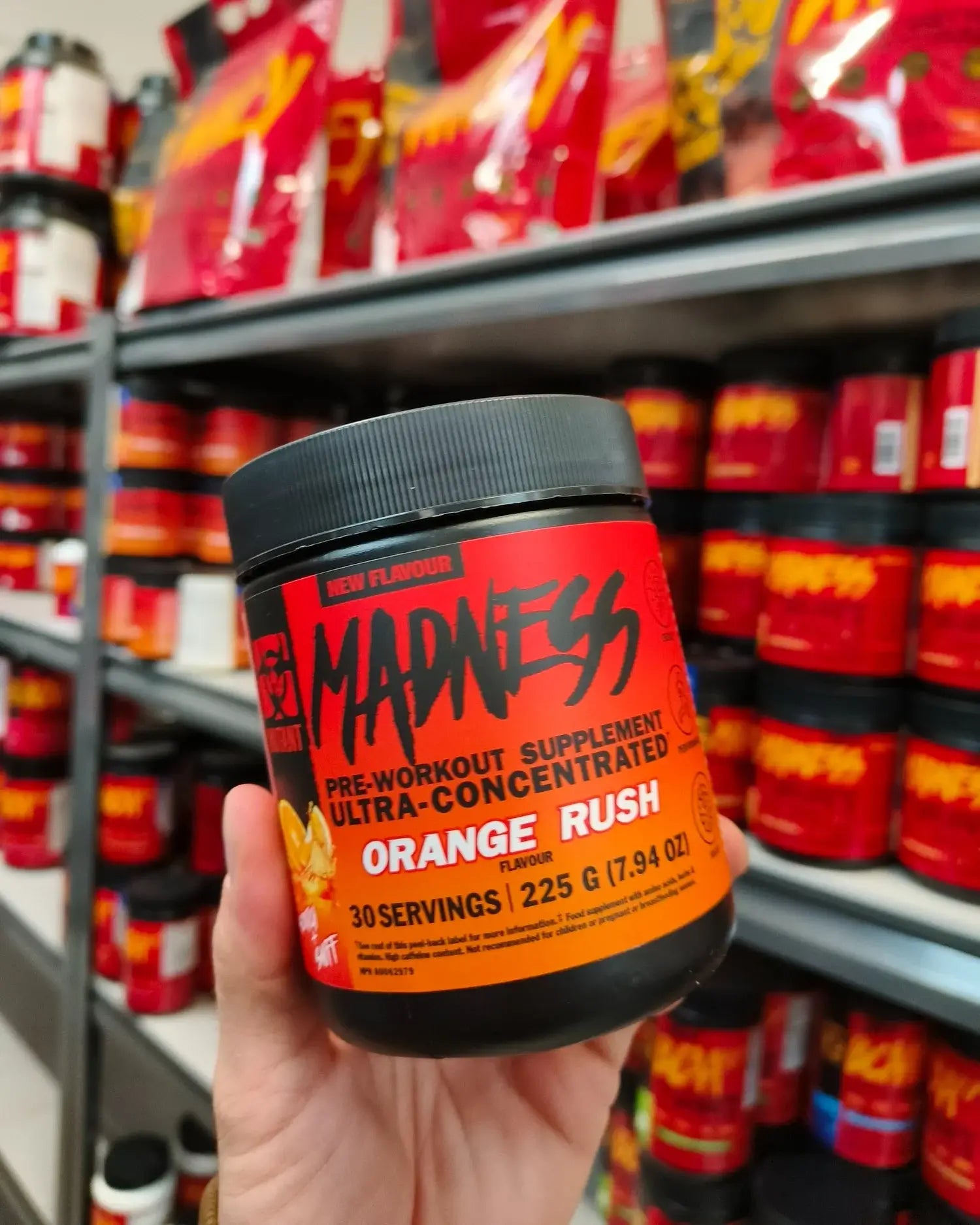Shopify Plus vs Shopify Advanced: A Comparative Analysis
News
Shopify Design & Development
Shopify Plus
Shopify Plus Design & Development
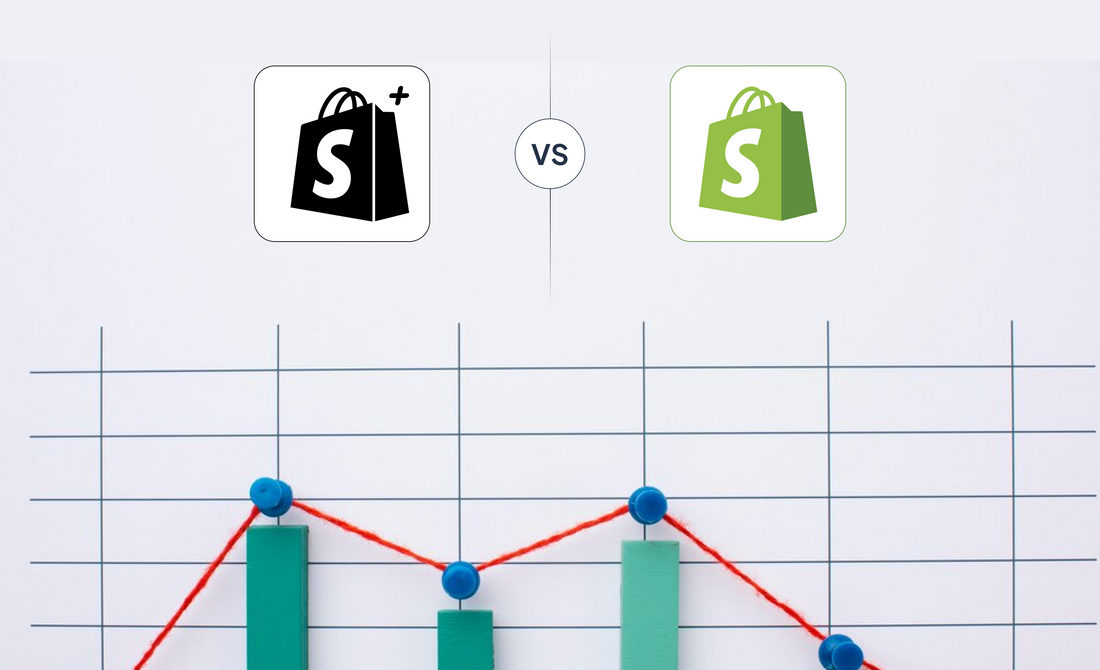
Choosing the right Shopify plan is an important decision - a choice that can significantly impact your business growth in the coming years.
Pick the wrong plan, and you could find yourself paying thousands in unnecessary fees, stuck with platform limitations, or offering a less-than-stellar customer experience. But make the right choice, and you discover tools, flexibility, and support that bring real business growth.
At the top of Shopify’s pricing tiers sit Shopify Advanced and Shopify Plus — two plans built for big brands but tailored to very different stages of growth and operational needs.
And this blog is here to guide you through everything.
Whether you're weighing an upgrade or planning your first move onto Shopify, we’ll compare Shopify Advanced vs Shopify Plus across various parameters for a better clarity.
Expect a practical, no-fluff guide that gives you the knowledge and confidence to choose the plan that fits your business today — and where you want to take it tomorrow.
Understanding Shopify Advanced and Shopify Plus
Before we go into a full fledged comparison between these pricing plans, let us understand if they are actually built for you - or not.
While both Shopify Advanced and Shopify Plus sit at the top of Shopify’s pricing ladder, they serve very different kinds of businesses with very different needs.
An overview of Shopify Advanced
Shopify advanced is like the perfect sweet spot for brands who need more than just the basics but aren’t quite ready for a full-blown enterprise solution. It is basically built for mid-level brands who want access to powerful tools - without the astronomical price tag of Shopify plus.
If we were to talk in numbers, this plan is perfect for brands processing anywhere from $50,000 to $500,000 in monthly sales.
Key USP of this plan includes:
- Affordable and predictable pricing ($399/month).
- Advanced reporting features to dig deeper into sales, customers, and product performance.
- Access to third-party calculated shipping rates, and more customization for checkout.
- Scalability with integrated tools that support a growing operation.
What’s new in 2025?
- Shopify has recently improved its analytics dashboards, giving Advanced users better visual data insights without needing third-party tools.
- There’s also improved checkout customization, bringing more flexibility with branding and upsell opportunities, which used to be exclusive to Plus.
An overview of Shopify Plus
Shopify plus is an enterprise solution - built for brands that are already playing in the big leagues or are about to. It is so much more than just a bigger plan - it is a completely different ecosystem designed for complexity, speed, and scale.
To put in simple words, Shopify plus is perfect for businesses who are - processing $1M+ in monthly revenue, running multiple online storefronts, selling across different regions or currencies, or integrating with large ERPs and CRM systems.
Key selling points are:
- Unlimited scalability, with the infrastructure to handle massive traffic and transaction volume.
- Dedicated Launch Engineer and Merchant Success Manager to support onboarding and ongoing growth.
- Access to Shopify Flow, Launchpad, and Script Editor for deep automation and custom logic.
- Multi-store management with localized content and checkout experiences across different domains.
What’s new in 2025?
- Shopify Plus now comes with enhanced AI-powered tools for predictive analytics, personalized merchandising, and smart automation.
- Expanded API limits and better integration options for enterprise-grade ERPs, OMSs, and CRMs.
- More powerful headless commerce features, enabling brands to build lightning-fast, content-rich frontends using frameworks like Hydrogen or other headless solutions.
Despite these differences, there are some core similarities between them such as:
-
Unlimited Products & Storage: You can scale your product catalog without worrying about limits.
-
24/7 Support: Access to Shopify’s support team around the clock.
-
Access to Shopify’s App Ecosystem: Both plans let you integrate with thousands of apps from marketing to inventory management.
-
POS Integration: Perfect for brands that sell both online and in-store.
-
Multi-currency Support: Sell in different currencies with automatic conversion.
- Built-in SEO Tools: Optimize your site structure, meta fields, and sitemaps for better search visibility.
So why is this comparison necessary?
Because your choice directly affects how efficiently your business can scale, how much control you have over customer experience, and how lean your tech stack can stay.
If you’re currently on Advanced and feeling limited — or on the verge of needing more automation, multi-store support, or enterprise-level integrations — then this comparison might help you decide if it’s time to make the jump.
Also read: 9 Reasons why you should hire a Shopify plus development agency
Shopify Advances vs Shopify Plus: A Detailed Comparison
Let’s break down how Shopify Advanced and Shopify Plus stack up across various key areas:
#1 Pricing and Cost Structure

When it comes to choosing between Shopify Advanced and Shopify Plus, pricing is often the first — and most important — factor merchants weigh. But it’s not just about the monthly subscription fee; it’s about understanding the total cost of ownership, including transaction fees, app costs, and potential development expenses.
Let’s do a detailed discussion:
Shopify Advanced
Monthly Cost: $299/month (as of 2025).
Transaction Fees: You will have to pay 2.4% + 30¢ per transaction when using Shopify Payments. If you use a third-party gateway, additional fees apply.
Additional Costs:
- Apps and Themes: Most growing stores rely on a few paid apps for marketing, reviews, or shipping enhancements.
- Developer Fees: While not essential, customizations may require hiring a Shopify developer as your business scales.
Best For: Brands that want a high-performing ecommerce platform without stepping into enterprise-level pricing. If you're looking for a lean, efficient way to run a $50K–$500K/month operation, Shopify Advanced is built for you.
Shopify Plus
Monthly Cost: Starts at $2,000/month and scales based on your sales volume. For high-growth businesses, this number is often negotiable.
Transaction Fees: Lower than Advanced — 2.15% + 30¢ per transaction with Shopify Payments. Over time, these lower fees can lead to significant savings for high-volume merchants.
Additional Costs:
- Setup & Onboarding: You may need to invest in professional setup services, particularly if you're migrating from another platform.
- Custom Development: Many Plus merchants build unique features, custom apps, or use headless architecture, which often requires developer support.
- Third-party Integrations: ERP, CRM, and OMS integrations may come with additional licensing or agency fees.
Best For: Large, high-volume businesses that prioritize customization, automation, and scalability — and have the resources to invest in a more tailored, future-ready solution.
Hidden Costs:
While Shopify Advanced keeps things relatively straight, Shopify Plus introduces potential hidden expenses that can catch new merchants off guard:
- Custom App Development: If you need functionality that doesn’t exist in the app store, you’ll likely need a custom-built solution.
- Migration Costs: Moving from another platform to Plus? Expect to invest in data migration, SEO preservation, and store setup.
- Agency or Partner Fees: Many Plus brands work with Shopify Plus Partners or agencies for complex builds, which adds to the total cost.
2025 Updates and Pricing Flexibility
In 2025, Shopify has introduced more flexible billing options, including discounts for annual commitments and custom enterprise pricing bundles for Shopify Plus.
This can include volume-based discounts, support for additional storefronts, and even service credits depending on your scale.
So, while the sticker price of Plus may seem steep, for businesses processing millions in monthly revenue, the ROI often outweighs the cost — especially when factoring in reduced transaction fees, automation, and dedicated support.
Also read: Shopify website development cost in 2025: Full breakdown
#2 Store Management and Scalability

As your business grows, the way you manage your store — and how scalable that system is — can make or break your efficiency. This is where the gap between Shopify Advanced and Shopify Plus really starts to widen.
Let’s go through each of these points.
Shopify Advanced
This plan gives you amazing features for a single, growing store:
Staff Accounts: Supports up to 15 staff logins, which works well for a growing team.
Inventory Management: Track and manage inventory across up to 8 physical locations — great for businesses with multiple warehouses or retail outlets.
Limitations:
- No support for managing multiple storefronts from a single admin.
- Limited API access, which means fewer opportunities for building custom automations or deep integrations with enterprise tools.
Use Case: Brands like Mott & Bow, a mid-sized US-based fashion label operate efficiently within a single storefront, sell primarily to a US audience, and manage a moderate team — all of which Shopify Advanced handles comfortably.
Shopify Plus
This plan is built for businesses that operate on a much larger scale — and across borders:
Staff Accounts: Unlimited staff logins, ideal for large teams across marketing, sales, operations, and development.
Storefront Management: Host and manage up to 10 separate stores under one Plus account. It is perfect for localized content, currencies, or B2B channels.
Advanced APIs: Discover deep customization via Shopify’s APIs, enabling integrations with ERP systems, CRMs, and OMS platforms.
Scalability: Expand easily into global markets with multi-language and multi-currency support.
2025 Update:
Shopify Plus now offers better omnichannel features. Thus it offers the ability to manage sales across social platforms like TikTok Shop, Instagram, and marketplaces like Amazon - all from one dashboard.
Use Case: Kylie Cosmetics has multiple localized storefronts, large international teams, and deep integration needs. Shopify Plus provides them with the infrastructure and flexibility to support their scale and complexity.
#3 Customization and Design

Your store’s design is a key part of your customer’s journey. And when it comes to customization, Shopify Advanced and Shopify Plus offer two very different levels of flexibility.
Let’s do a detailed discussion:
Shopify Advanced
It gives merchants access to a wide range of design tools — perfect for businesses that want a polished, high-performing store without getting into the weeds of deep customization.
Theme Library Access: Use any of Shopify’s professionally designed themes (both free and paid).
Liquid Code Customization: You get access to basic Liquid templating, which allows for moderate edits to layouts and sections.
Checkout Customization: Limited to basic branding and minor upsell placements — no control over the full checkout flow.
2025 Update:
Shopify has improved its theme editor with better drag-and-drop functionality, making it easier than ever to tweak layouts, adjust branding, and personalize content— even without a developer.
Shopify Plus
This plan offers advanced customization capabilities that go far beyond what’s available in the standard plans:
Full Checkout Customization: Through Shopify Scripts, Plus merchants can create dynamic pricing rules, personalized promotions, and custom shipping logic directly within the checkout experience.
Headless Commerce Support: Want total creative freedom? Shopify Plus supports headless builds, allowing you to use frontend frameworks like React or Next.js while still leveraging Shopify on the backend.
2025 Update:
Shopify Plus now includes AI-powered design tools to help brands auto-generate personalized storefront components based on customer data, behaviors, and preferences.
Practical Tip: If your business needs unique checkout flows — such as tiered pricing, gated products, or custom discount logic — Shopify Plus is the only plan that offers that level of flexibility.
Also read: Grok vs ChatGPT: Who’s the smarter AI in 2025?
#4 Analytics and Reporting

Data is the life and soul of any business - and the level of analytics you get with these plans can drastically affect how you plan, market, and grow.
Shopify Advanced
For growing businesses, this plan offers a strong set of reporting tools:
Advanced Reports: Access detailed insights on sales, customer behavior, product performance, and inventory trends.
Custom Report Builder: Tailor your reports to track specific KPIs that matter to your business — whether it's repeat customer rate or best-selling categories.
Limitations:
- No access to predictive analytics.
- No cross-store reporting, which becomes a challenge if you operate more than one Shopify store.
This level of analytics works well for brands with a single storefront and a focused audience. Thus it helps them make data-backed decisions without being overwhelmed by complexity.
Shopify Plus
This plan takes reporting several steps further, giving large brands the tools to truly understand — and anticipate — their performance:
Enterprise-Grade Analytics: Get a bird’s-eye view of performance across multiple stores, regions, or markets.
AI-Powered Predictive Insights (2025 Update): Use machine learning to forecast inventory needs, marketing performance, and demand surges — especially useful for seasonal campaigns.
BI Tool Integration: Connect your store data with Tableau, Power BI, or Looker via APIs for deep business intelligence insights.
Case Study - Allbirds:
US-based sustainable footwear brand Allbirds uses Shopify Plus to monitor performance across its global storefronts.
During Black Friday campaigns, they rely on predictive analytics and real-time dashboards to forecast demand and allocate inventory efficiently. This allows them to launch targeted offers by region and ensure smooth operations during high-traffic periods.
#5 Automation and Workflows

Automation is what keeps modern ecommerce businesses running efficiently — saving time, reducing manual work, and driving higher conversions.
Here's how Shopify Advanced and Shopify Plus compare in this area.
Let’s go through each of these differences.
Shopify Advanced
This plan supports basic automation — but you'll need third-party apps to leverage most of its potential:
Email & Cart Recovery: You can automate abandoned cart emails and marketing workflows using apps like Klaviyo or Omnisend.
Operational Automation: Limited to what apps can provide — there’s no built-in automation platform for advanced logic or workflows.
If you're scaling rapidly, these limitations can start to bottleneck your operations and customer journey automation.
Shopify Plus
This plan takes automation to the next level with Shopify Flow, a powerful visual workflow builder that integrates directly with your store:
Advanced Automation: Create workflows for inventory alerts, tagging high-value customers, fraud detection, and auto-notifications for your team.
Marketing Integration: Sync smoothly with tools like Klaviyo, enabling hyper-personalized campaigns based on customer actions, order value, or engagement.
2025 Update:
Shopify Plus now comes with pre-built Flow templates for common automations like cart abandonment recovery, upselling, and loyalty triggers — making setup even faster.
Use Case – Dr. Squatch
US-based D2C men’s grooming brand Dr. Squatch uses Shopify Plus automation to send real-time SMS reminders for abandoned carts.
By combining Shopify Flow with Klaviyo and Postscript, they were able to recover up to 35% of abandoned carts, driving significant extra revenue — especially during peak sales periods like Father’s Day or Cyber Week.
Also read: Shopify payments vs third-party gateways: A guide
#6 Support and Account Management

When your business is growing, the level of support you receive from Shopify can make all the difference.
Shopify Advanced
This plan provides 24/7 priority support through all standard channels — chat, email, and phone.
Access to Shopify’s Help Center and live agents when you need assistance.
No dedicated account manager, which means you'll be managing upgrades, feature rollouts, and technical escalations on your own.
This level of support is solid for most mid-sized businesses but can feel limited during complex events like flash sales, major site changes, or multi-channel expansions.
Shopify Plus
With this plan, support becomes personal and strategic — not just reactive.
Dedicated Merchant Success Manager (MSM): You get a go-to advisor who understands your business, helps you plan growth strategies, and connects you with beta features or partner agencies.
Priority Technical Support: Issues are escalated faster, and Shopify’s Plus support team is trained to handle enterprise-level complexity.
2025 Update:
This plan has expanded its support for headless commerce migrations, helping brands decouple their frontend while minimizing downtime.
Why It Matters – Especially in Q4:
Peak seasons like Black Friday and Cyber Monday can make or break your revenue goals. Shopify Plus merchants often rely on their Merchant Success Manager to pre-test campaigns, optimize infrastructure, and resolve urgent issues within minutes — not hours.
That level of support can be the difference between a six-figure day and a total tech meltdown.
#7 Apps and Integrations

Apps extend functionality, connect systems, and personalize customer experiences. But not all apps are accessible at every plan level.
Shopify Advanced
With this plan, you get full access to the Shopify App Store, which includes thousands of tools for everything from marketing to inventory to SEO.
- Use apps like Klaviyo, Judge.me, Loox, or SEO Manager to streamline operations and boost conversions.
- Themes like Kalles or Prestige are popular among Advanced users looking for professional, high-converting storefronts.
- Limitations: Certain enterprise-level apps (like native B2B tools or advanced wholesale pricing) are restricted to Shopify Plus.
This plan works well for merchants who rely on plug-and-play solutions and want flexibility without heavy customization.
Shopify Plus
This plan opens the door to exclusive integrations and private app development.
- Access to enterprise-grade apps for wholesale, B2B portals, advanced inventory, ERP/CRM integrations, and more.
- Build custom functionality through private apps or APIs—ideal for businesses with unique workflows or headless setups.
2025 Trend:
AI-powered personalization is booming. Plus merchants are leveraging AI-based tools like Rebuy, Octane AI, and LimeSpot to create hyper-personalized product recommendations and dynamic content blocks.
Pro Tip: If your store is growing toward complex backend systems—like integrating a custom ERP or managing multiple inventory warehouses — Shopify Plus gives you the backend power to make it smooth and easy.
Also read: Top Shopify marketing automation tools for 2025
#8 Checkout and Payment Options

The checkout experience is where conversions are won or lost. It's not just about taking payments — it's about making the process trustworthy, and optimized for your audience.
Shopify Advanced
With this plan, you get a standard checkout experience that’s polished and reliable.
Branding & Customization: You can add your logo, change colors, and apply basic style tweaks—but deeper changes to checkout flow are restricted.
Payment Gateways: Shopify Payments is supported, along with third-party options like Stripe, PayPal, and Authorize.net.
Transaction Fees: If you don’t use Shopify Payments, expect additional fees.
Security: Compliant with PCI DSS standards, ensuring secure processing for all transactions.
Great for businesses that need a solid, ready-to-go solution without the need for advanced customization.
Shopify Plus
This plan takes checkout to an entirely different level — because at the enterprise level, checkout isn't just a page, it's a conversion engine.
Full Checkout Customization: With Shopify Scripts and Checkout Extensibility, Plus users can offer one-click checkouts, conditional shipping rates, custom payment rules, and dynamic promotions.
Global Sales Ready: The 2025 update includes a multi-currency smart checkout that adjusts based on customer location—crucial for global brands.
Advanced Security: Shopify Plus merchants benefit from OmniShield, an advanced fraud protection system exclusive to the plan.
Lower Transaction Fees: More favorable rates when using Shopify Payments—an edge for high-volume stores.
Real-World Impact: If you’re running flash sales, international stores, or complex shipping rules, Plus gives you the flexibility to optimize every aspect of your checkout funnel.
#9 Handling High Traffic

Whether you’re running a seasonal campaign or launching a viral product, your store's ability to handle a surge in traffic can make or break the moment.
Here's how both these plans stack up when things get busy.
Shopify Advanced
Traffic Support: Reliable for moderate traffic volumes, typically 10,000 to 50,000 monthly visitors.
Performance: Performs well under regular conditions but may experience delays or limitations during high-traffic events like Black Friday or flash sales.
Reliability: Backed by Shopify’s global CDN and secure hosting infrastructure, but not optimized for extreme spikes.
Shopify Plus
Engineered for Scale: Designed to handle high-traffic events — we are talking about hundreds of thousands of concurrent visitors.
2025 Update: Shopify Plus now includes AI-driven load balancing, which automatically redistributes server load during traffic surges (e.g., during flash sales or restocks).
Guaranteed Uptime: Delivers 99.99% uptime SLA, keeping your site online and fast when it matters most.
Infrastructure Advantage: Plus stores are hosted on a separate, more powerful architecture with priority access to new infrastructure rollouts.
Also read: 8 Ecommerce roadblocks Shopify plus helps you overcome
#10 Global Expansion

Selling globally is more than just turning on multi-currency - it is also about providing a localized experience, optimizing performance in international markets, and managing operations across borders.
Shopify Advanced
Multi-Currency Support: Shopify Payments allows you to sell in multiple currencies with automatic conversions.
Basic Localization: You can translate your store into different languages and use region-specific domains with third-party apps.
Operational Considerations: While international shipping is possible, scaling into new regions may require workarounds or multiple apps.
Shopify Plus
Multi-Store Management: Manage multiple international storefronts (e.g., US, CA, UK) from a single Shopify Plus account.
Global CDN: Ensures fast load times for international customers — especially important for mobile-first regions.
Advanced Localization: Tailor content, pricing, payment gateways, and products to specific countries or regions.
Integration Ready: Easily connects to regional ERPs, fulfillment centers, and localized tax systems.
#11 B2B And Wholesale

B2B Ecommerce is a booming segment that demands specialized tools. Whether you're selling to distributors, offering tiered pricing, or managing bulk orders, your Shopify plan plays a major role in how well you serve your business customers.
Shopify Advanced
B2B via Apps: You can enable wholesale functionality using third-party apps like Wholesale Club, Bold Custom Pricing, or B2B Handsfree.
Limitations: While apps help, you’ll face restrictions with custom pricing, gated catalogs, and streamlined bulk ordering.
Manual Processes: Many B2B workflows — like PO approvals or account-based pricing — require workarounds or manual steps.
Shopify Plus
Built-in B2B Suite: Shopify Plus comes with native B2B tools, including:
- Customer-specific catalogs
- Volume-based pricing
- Net payment terms
- Custom storefronts for wholesale clients
2025 Update: New B2B checkout improvements, including saved order lists, personalized checkout fields, and dynamic payment terms.
Streamlined Ops: Integrates easily with B2B-focused ERPs and CRMs like NetSuite and Salesforce.
Cost Benefit Analysis for Shopify Merchants
Your choice between these two plans will decide the profitability of your store.
Let’s break down the ROI for each plan and help you understand where your money goes (and what you get back).
ROI of Shopify Advanced
For US-based businesses making $50,000 to $500,000 per month, Shopify Advanced can be an excellent sweet spot.
Lower Monthly Cost: At $299/month, it’s significantly more affordable than Plus, making it ideal for growing brands still watching their bottom line.
Break-Even Point: If you’re processing moderate volumes with low complexity, the lower price offsets the lack of Plus-level features.
Lean Stack Strategy: By combining this plan with well-chosen apps and some light development work, many mid-sized businesses can cover their needs efficiently.
ROI of Shopify Plus
If you’re consistently bringing in $1M+ per month, the ROI of Shopify Plus becomes crystal clear.
Built-In Automation = Time Saved: Shopify Flow, B2B tools, and native integrations drastically reduce manual work and staff dependency.
Lower Transaction Fees: For high-volume merchants, the reduced rates (2.15% vs 2.4%) quickly add up—often covering the cost difference alone.
Scalability = More Revenue: Plus enables faster global expansion, advanced analytics, and better customer experiences, which translate directly into higher revenue and repeat purchases.
Budgeting Tips

No matter the plan, budgeting for your total Shopify ecosystem is crucial. Here’s how to do it smartly in 2025:
Pro Tip: Use Shopify’s built-in cost calculator (if available in 2025) or work with a Shopify Partner agency to estimate your total cost of ownership (TCO) based on projected sales.
How To Choose The Right Shopify Plan?
By now, you've seen how Shopify Advanced and Shopify Plus differ in features, costs, and scalability. But the final decision really boils down to your business's specific goals, infrastructure, and growth trajectory.
Here’s how to approach it wisely.
Decision Framework
Choosing the right Shopify plan should start with a strategic framework. Ask yourself:
Revenue & Stage: Are you pulling in $50K/month — or closer to $1M+? Advanced can handle growing brands, while Plus is purpose-built for scale.
Technical Requirements: Do you need API access, custom storefronts, or headless commerce support? If yes, Plus will give more flexibility.
Growth Goals: Planning to go international? Launch B2B channels? Handle high-traffic flash sales? These ambitions point to Shopify Plus.
ROI Outlook: Consider how quickly you’ll make back the investment. For many Plus users, lower fees and streamlined operations lead to faster ROI.
Key Questions To Ask

Before committing to either plan, use these questions to pressure test your decision:
Consulting Shopify Experts
Making the right choice is one thing — implementing it effectively is another. That’s where Shopify Partners and Plus agencies come in.
Why it Helps: Experts can optimize your store, automate workflows, migrate data, and develop custom solutions.
Technical Setup: From ERP integrations to custom headless storefronts, agencies handle the heavy lifting.
Strategic Guidance: Plus agencies like CrawlApps often work directly with Shopify’s Merchant Success Managers to align your store with platform updates.
Free Trial And Testing
Shopify Advanced Trial: Use Shopify’s 3-day trial + $1/month offer (or whatever is current in 2025) to explore reporting, apps, and checkout settings.
Shopify Plus Demo: Enterprise merchants can request a tailored demo and consultation through Shopify’s sales team. They’ll walk you through the dashboard, automation tools, B2B features, and more.
Test-Drive Strategy: Simulate real use cases — try setting up automation, running a B2B scenario, or stress-testing performance under traffic spikes.
Wrapping Up
To sum up - If you’re growing steadily and need powerful tools without going full enterprise, Advanced might be all you need right now. But if you're running a high-volume brand, planning international expansion, or looking for serious automation and customization, Shopify Plus could be the smarter long-term move.
At the end of the day, there’s no one-size-fits-all answer—but there is a right fit for your business.
Not sure what to choose? That’s totally normal. At CrawlApps, we help merchants like you figure out what makes the most sense—based on your goals, budget, and where you want to be a year from now.
Let’s connect: Book a free consultation and we’ll walk you through your options — no pressure, just practical advice to help you move forward with confidence.
CrawlApps
At CrawlApps, we don’t just build Shopify stores—we create experiences that sell. We’re a bunch of problem-solvers who love turning ideas into stores that actually converts. Whether it’s fixing what’s broken or building something from scratch, we make sure every detail works in your favor. No fluff, no jargon—just real solutions that help your business grow. If you’re serious about Shopify, you’ll feel right at home with us.


